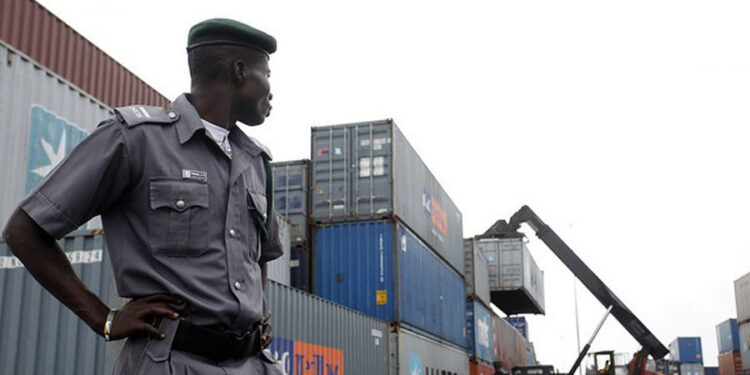The Federal Government, on Monday, suspended the newly introduced Free on Board (FOB) levy collected by the Nigeria Customs Service (NCS) on imported goods.
According to TheCable, this was contained in a memo sighted by it.
The publication noted that the Permanent Secretary, Special Duties in the Office of the Minister of Finance and Coordinating Minister of the Economy, said the suspension follows “extensive consultations with industry stakeholders, trade experts, and relevant government officials”.
“It has become clear that the implementation of the 4% FOB charge poses significant challenges to the Nigerian trade facilitation, environment and economic stability. Many importers and businesses have raised concerns about the increased financial burden this levy imposes, with potential adverse effects on inflation, trade competitiveness, and the overall business climate in Nigeria,” he said.
Omachi said the suspension “will provide an opportunity for comprehensive stakeholder engagement and a thorough review of the levy’s framework and its broader economic implications. The Ministry of Finance looks forward to working closely with the Service and all relevant parties to devise a more equitable and efficient revenue structure that supports both revenue generation and economic growth and stability”.
In February this year, the NCS announced plans to implement a four percent charge on the FOB value of imports.
The plan was later suspended to allow for comprehensive stakeholder engagement and consultations regarding the implementation framework.
However, on July 23, 2025, the NCS announced it will replace its seven percent collection fees from the federation account and one percent CISS with a 4 percent FOB levy at the port.
The service said that with the indigenously developed trade platform, it had no choice but to reintroduce the levy to enhance its operational efficiency and fund the technology and modernisation programme of the service.
Concerned stakeholders, including the Manufacturers Association of Nigeria (MAN) had kicked against the reintroduction of the 4 percent FOB charge, warning that the policy would significantly raise the cost of importing raw materials, machinery, and spare parts not available locally.
















